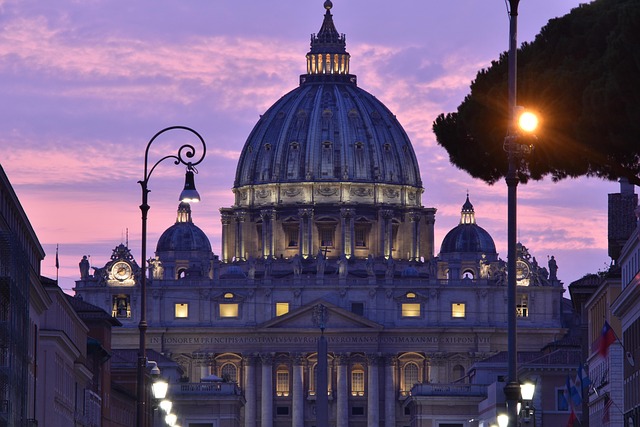
Pope Leo XIV's Vision: Addressing the Challenges of Artificial Intelligence in the Modern World
In May 2025, the election of Pope Leo XIV marked a significant moment in the history of the Catholic Church. As the first American pope and a member of the Augustinian religious order, Pope Leo XIV has brought a fresh perspective to the Vatican's approach to contemporary issues. One of the most pressing challenges he has identified is the rapid advancement of artificial intelligence (AI) and its profound implications for humanity.

The Emergence of Pope Leo XIV and His Focus on AI
Pope Leo XIV's election was swift, reflecting the cardinals' confidence in his leadership. In his inaugural address, he emphasized the continuity of the Church's mission, particularly in upholding the inclusive vision articulated by his predecessor, Pope Francis. A notable aspect of his address was the identification of AI as a critical challenge facing humanity.
"In our own day, the Church offers everyone the treasury of its social teaching in response to another industrial revolution and to developments in the field of artificial intelligence that pose new challenges for the defense of human dignity, justice, and labor." (ketv.com)
This statement underscores Pope Leo XIV's commitment to addressing the ethical and social implications of AI, drawing parallels to the Church's historical engagement with technological advancements.
Historical Context: The Church's Engagement with Technology
The Catholic Church has a longstanding history of engaging with technological progress. During the Industrial Revolution, Pope Leo XIII addressed the social questions arising from rapid industrialization in his encyclical Rerum Novarum. This document laid the foundation for modern Catholic social teaching, emphasizing the rights of workers and the importance of social justice.
Pope Leo XIV's choice of papal name is a deliberate nod to Pope Leo XIII, signaling his intention to continue this tradition of addressing societal challenges through the lens of Catholic teaching. By focusing on AI, Pope Leo XIV aims to guide the Church's response to the ethical dilemmas posed by modern technology.
The Ethical Implications of Artificial Intelligence
Artificial intelligence encompasses a range of technologies that enable machines to perform tasks that typically require human intelligence. While AI offers numerous benefits, it also presents significant ethical concerns:
Impact on Employment and Labor
The automation capabilities of AI threaten to displace workers across various industries. Pope Leo XIV has highlighted the potential for AI to exacerbate existing socioeconomic divides, with benefits flowing primarily to wealthy nations and corporations while disadvantaged communities fall further behind. (rvasia.org)
Privacy and Surveillance
AI technologies, particularly those involved in data collection and analysis, raise concerns about individual privacy and the potential for mass surveillance. The Church emphasizes the need for responsible stewardship of personal data to protect human dignity.
Bias and Inequality
AI systems can perpetuate and even amplify existing biases present in their training data. This can lead to discriminatory outcomes, affecting marginalized groups disproportionately. Pope Leo XIV has called for ethical guidelines to ensure AI development does not reinforce societal inequalities.
Autonomous Weapons and Warfare
The development of AI-driven autonomous weapons poses new challenges in warfare, including the potential for unaccountable actions and violations of international law. The Church advocates for international agreements to regulate the use of such technologies.
The Church's Response: Ethical Guidelines and Initiatives
In response to the challenges posed by AI, the Catholic Church has undertaken several initiatives:
Vatican's AI Guidelines
In January 2025, the Vatican City State issued its official guidelines on AI, prohibiting uses that create social inequalities or violate human dignity. These guidelines reflect the Church's commitment to ensuring that AI serves the common good and aligns with Catholic values. (archpitt.org)
"Antiqua et Nova" Document
The Vatican released "Antiqua et Nova," a document reflecting on the relationship between artificial and human intelligence. It emphasizes the importance of considering the anthropological and ethical implications of AI, advocating for its use to promote human progress and the common good. (archpitt.org)
Collaboration with Tech Companies
The Church has engaged in dialogues with technology companies to promote ethical AI development. In 2020, under Pope Francis, the Vatican and tech giants IBM and Microsoft signed the "Rome Call for AI Ethics," a document outlining principles for the ethical development of AI. (washingtonpost.com)
Pope Leo XIV's Vision for the Future
Pope Leo XIV envisions a Church that actively engages with technological advancements, ensuring they align with the principles of human dignity, justice, and the common good. He advocates for a balanced approach that embraces the benefits of AI while mitigating its risks.
"Artificial intelligence, with its immense potential, requires responsibility and discernment to ensure that it can be used for the good of all, so that it can benefit all of humanity." (ncronline.org)
This perspective calls for a global dialogue on the ethical use of AI, involving policymakers, technologists, ethicists, and religious leaders.
The Role of the Church in Guiding AI Development
The Church's role is not to oppose technological progress but to guide its development in a manner that upholds ethical standards and serves the common good. Pope Leo XIV's approach includes:
- Education and Awareness: Promoting understanding of AI's implications among the faithful and the broader public.
- Advocacy for Ethical Standards: Engaging in dialogues to establish ethical guidelines for AI development and use.
- Support for Research: Encouraging research into the social and ethical impacts of AI.
Conclusion
Pope Leo XIV's focus on artificial intelligence reflects a proactive stance by the Catholic Church in addressing contemporary challenges. By drawing on the Church's rich tradition of social teaching and ethical reflection, Pope Leo XIV aims to navigate the complexities of AI, ensuring that its development and application respect human dignity and promote the common good.

As AI continues to evolve, the Church's guidance will be crucial in shaping a future where technology serves humanity ethically and justly.